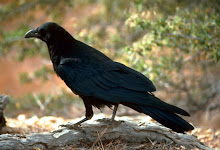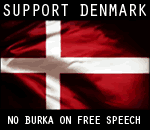The Master of Chess
Do Times de Londes. O Times eh um jornal conservador. Sugiro que voces leiam tambem a colecao de artigos do Financial Times. Apresentam uma visao neutra sobre a guerra na Georgia, nada dos espetaculares ataques raivosos do RA e do MSM.
Nao, nao virei russa nao. So acho que nao da para pedir a Russia para avisar a ONU enquanto os Estados Unidos fazem sim o que bem entendem e a Otan mete os pes pelas maos nos Balcans e no Caucaso. Sinto muito, mas como diz o artigo, levaram cheque-mate. E bem merecido.
From The Times - August 14, 2008 - Vladimir Putin's mastery checkmates the West
Russia has been biding its time, but its victory in Georgia has been brutal - and brilliant. The cartoon images have shown Russia as an angry bear, stretching out a claw to maul Georgia. Russia is certainly angry, and, like a beast provoked, has bared its teeth. But it is the wrong stereotype. What the world has seen last week is a brilliant and brutal display of Russia's national game, chess. And Moscow has just declared checkmate.
Chess is a slow game. One has to be ready to ignore provocations, lose a few pawns and turn the hubris of others into their own entrapment. For years there has been rising resentment within Russia. Some of this is inevitable: the loss of empire, a burning sense of grievance and the fear that in the 1990s, amid domestic chaos and economic collapse, Russia's views no longer mattered.
A generalised resentment, similar to the sour undercurrents of Weimar Germany, began to focus on specific issues: the nonchalance of the Clinton Administration about Russian sensitivities, especially over the Balkans and in opening Nato's door to former Warsaw Pact members; the neo-conservative agenda of the early Bush years that saw no role for Russia in its global agenda; and Washington's ingratitude after 9/11 for vital Kremlin support over terrorism, Afghanistan and intelligence on extremism.
More infuriating was Western encouragement of "freedom" in the former Soviet satellite states that gave carte blanche to forces long hostile to Russia. In the Baltic states, Soviet occupation could be portrayed as worse than the Nazis. EU commissioners from new member states could target Russian policies. Populists in Eastern Europe could ride to power on anti-Russian rhetoric emboldened by Western applause for their fluency in English.
Nowhere was such taunting more wounding than in Ukraine and Georgia, two countries long part of the Russian Empire, whose history, religion and culture were so intertwined with Russia's. Moscow tried, disastrously, to check Western, and particularly American, influence in Ukraine. The clumsy meddling led to the Orange Revolution.
Georgia was a different matter. Relations were always mercurial, but Eduard Shevardnadze, the wily former Soviet Foreign Minister, knew how to keep atavistic animosities in check. Not so his brash successor, Mikheil Saakashvili. From then on, hubris was Tbilisi's undoing.
It was not simply the dismissive rhetoric, the open door to US advisers or the economic illiteracy in forgetting dependence on Russian energy and remittance from across the border; it was the determined attempt to make Georgia a US regional ally and outpost of US influence.
Big powers do not like other big powers poaching. This may not be moral or fair but it is reality, and one that underpins the Security Council veto. The Monroe Doctrine - “hands off the Americas” - has been policy in Washington for 200 years. The US is ready to risk war to keep out not only other powers but hostile ideologies - in Cuba and Nicaragua.
Vladimir Putin lost several pawns on the chessboard - Kosovo, Iraq, Nato membership for the Baltic states, US renunciation of the ABM treaty, US missiles in Poland and the Czech Republic. But he waited.
The trap was set in Georgia. When President Saakashvili blundered into South Ossetia, sending in an army to shell, kill and maim on a vicious scale (against US advice and his promised word), Russia was waiting.
It was not only Mr Saakashvili who thought that he had the distraction of the Olympics to cover him; the Kremlin also knew that Mr Bush was watching basketball, and, in the longer term, that the US army was fully engaged in Iraq and Afghanistan. From the day that the Russian tank brigade raced through the tunnel into South Ossetia, Russia has not made one wrong move. Mr Bush's remarks yesterday notwithstanding, In five days it turned an overreaching blunder by a Western-backed opponent into a devastating exposure of Western impotence, dithering and double standards on respecting national sovereignty (viz Iraq).
The attack was short, sharp and deadly - enough to send the Georgians fleeing in humiliating panic, their rout captured by global television. The destruction was enough to hurt, but not so much that the world would be roused in fury. The timing of the ceasefire was precise: just hours before President Sarkozy could voice Western anger. Moscow made clear that it retained the initiative. And despite sporadic breaches - on both sides - Russia has blunted Georgian charges that this is a war of annihilation.
Moscow can also counter Georgian PR, the last weapon left to Tbilisi. Human rights? Look at what Georgia has done in South Ossetia (and also in Abkhazia). National sovereignty? Look at the detachment of Kosovo from Serbia. False pretexts? Look at Ronald Reagan's invasion of Grenada to “rescue” US medical students. Western outrage? Look at the confused cacophony.
There are lessons everywhere. To the former Soviet republics - remember your geography. To Nato - do you still want to incorporate Caucasian vendettas into your alliance? To Tbilisi - do you want to keep a President who brought this on you? To Washington - does Russia's voice still count for nothing? Like it or not, it counts for a lot.






Um comentário:
Curiosidade: Já leu algum colunista comparando Putin ou Medvedev à Hitler? Pois é...
Postar um comentário